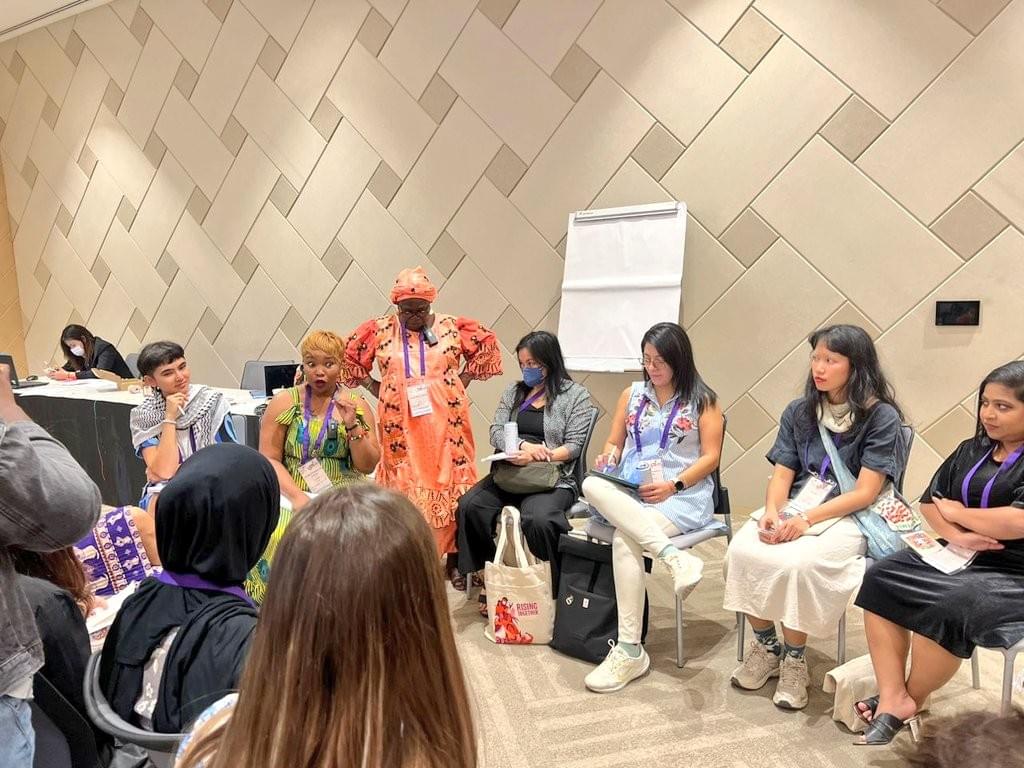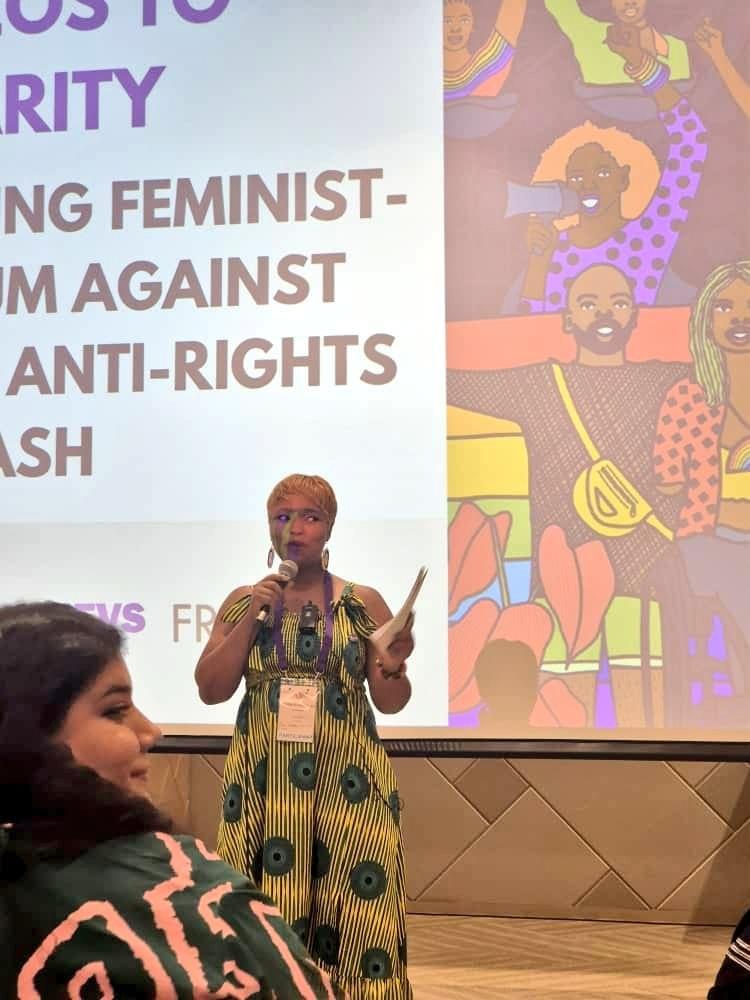
The pushback by anti-human rights groups is not just a challenge; it is an outright injustice. It’s a deliberate, calculated assault on the dignity, safety, and freedom of countless individuals across the globe. From the heartbreaking restrictions on abortion rights in Kenya and Niger to Uganda’s draconian laws targeting LGBTQIA+ individuals and the violent marginalization of women and persons with disabilities in the DRC, the message is clear: some governments, emboldened by anti-rights movements, are playing god with people’s lives.
Make no mistake—this is no accident. These backlashes are systematic and disturbingly well-funded. Behind the scenes are some of the world’s wealthiest men, channeling vast resources to dismantle hard-won human rights protections. Their influence fuels policies and social attitudes that perpetuate violence, discrimination, and exclusion, making them complicit in the suffering of millions.
The consequences are devastating. Women are being denied life-saving abortions, forcing them to endure unimaginable pain and danger. LGBTQIA+ individuals are criminalized for existing, stripped of basic rights and forced to live in fear. Persons with disabilities face systemic exclusion, their humanity ignored by policies that fail to account for their needs. Survivors of gender-based violence are abandoned by institutions meant to protect them, their voices silenced and justice denied.
And at the forefront of this fight, human rights defenders endure relentless attacks. From online harassment to threats and smear campaigns, their lives and work are under siege by those seeking to dismantle progress.
But here’s the truth: we are not broken.
Across the globe, activists are refusing to back down. They are finding innovative ways to reclaim spaces—both physical and digital. They are using art, music, and storytelling to challenge oppressive narratives. Communities are coming together to protect one another, creating solidarity networks that offer safety and support in the face of escalating risks.
The Silos to Solidarity session at the AWID Forum was a powerful reminder of the resilience and ingenuity of human rights defenders. As I led a group discussion on backlash, I shared my own experiences, including the resistance I faced while implementing my WOSSO advocacy plan in a patriarchal village setting. Despite these challenges, our group emerged with actionable strategies, and I was honored to represent them during the session’s report-back.
I had the opportunity to share the story of Nombulelo Majodina, a fearless woman challenging a patriarchal chief in my rural village where I am implementing the WOSSO advocacy plan. Together, we mobilized the village, petitioned for change, and are working toward electing the first female chief of our village. Stories like hers are proof that even in the most resistant spaces, transformation is possible.
The truth is that the pushback against human rights often finds its fiercest stronghold in rural, traditional spaces. These environments, steeped in patriarchal norms, frequently resist progress under the guise of "preserving culture." But it’s time for transformation, and that transformation begins in my village with a bold vision: electing our first female chief.
Leadership is not just about representation—it’s about creating real, tangible change. A female chief would break the centuries-old glass ceiling in rural governance, challenging the norms that have historically silenced women in decision-making spaces. Her leadership would stand as a beacon of hope and progress, signaling to the community that leadership isn’t determined by gender but by vision, compassion, and capability.
Traditional council meetings often exclude or undervalue women’s perspectives, leaving issues like gender-based violence (GBV), access to education, healthcare, and land rights neglected. I believe that a female chief would change this dynamic, ensuring that these critical issues are addressed with the urgency they deserve. Her presence would inspire other women to participate, making council spaces more inclusive and representative of the community’s true needs.
Traditional spaces are often perceived as obstacles to human rights progress, but a female chief could redefine this narrative. By integrating modern, progressive policies with cultural leadership, she would prove that tradition and human rights can coexist harmoniously. Open dialogue about GBV, reproductive rights, and LGBTQIA+ inclusion could foster understanding and equity within the community, countering the anti-human rights rhetoric that is spreading globally.

Traditional leaders are integral in shaping societal norms and can be powerful allies in the fight against human rights backlashes. Their involvement not only lends authority to advocacy efforts but also facilitates the transformation of cultural practices that hinder human rights. By rallying these leaders, we can foster inclusive and equitable communities, effectively countering the backlash against human rights.
I think that mobilizing influential traditional leaders is going to be pivotal in combating the backlash against human rights, particularly in addressing gender-based violence (GBV). I will make an example with his Majesty King Misuzulu kaZwelithini of the AmaZulu nation as he exemplifies this leadership. Recently, on December 6, 2024, King Misuzulu, alongside Minister Sindisiwe Chikunga, led the 'Men Unite Against Gender-Based Violence and Femicide (GBVF) March' in Durban, aligning with the 16 Days of Activism for No Violence Against Women and Children campaign. But he cannot do it alone.
Other South African kings and queens—like King Dalindyebo of the AbaThembu, Queen Noloyiso Sandile of the AmaRharhabe, and others who lead with wisdom and strength in their respective communities—could further strengthen our efforts against GBV and other human rights violations in rural settings. These leaders hold sway over millions of people and have the cultural authority to shift deeply entrenched patriarchal mindsets. I do believe that by mobilizing them, we can reframe traditional spaces as inclusive and progressive platforms for human rights advocacy.
We need more voices, more allies, and more action. To my comrades in civil society, policymakers, and to traditional leaders: this is my call to mobilize. We must break free from silos, working across movements, sectors, and geographies to push back against the pushback.
But as we fight, we must do so strategically and safely. The forces against us are relentless, and we owe it to each other to create protected spaces for activism. Solidarity is not just a buzzword; it’s a survival strategy.
The backlash is here, but so is our resistance. Together, we can demand a world where human rights are non-negotiable, where justice is universal, and where dignity is a right for all, not a privilege for a few.
To our traditional leaders and change-makers: your influence is needed. Let us rally together and transform tradition into a force for justice and equality.
Enough is enough. We will not be silenced. We will not be defeated. And in unity, we will triumph.

